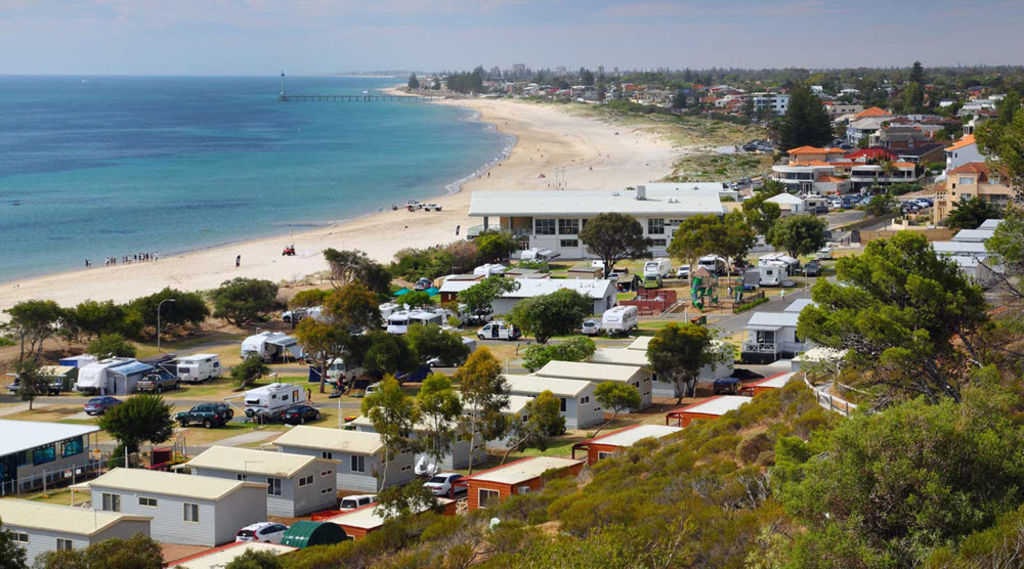
Caravan parks disappearing as land prices soar
Caravan parks are being “squeezed” out and bought off by developers, with the classic site of the family holiday in rapid decline due to skyrocketing housing prices and stringent government regulations.
At the same time the sale of caravans and RVs is burgeoning, leading to a crisis of uneven supply and demand in the industry.
Southern Cross University academic Rod Caldicott, who has written on caravanning, says caravan parks are widely being sold off to opportunistic developers wanting to transform the large sites into lucrative resorts, retirement villages or shopping precincts.
“Caravan parks are pretty valuable pieces of land – they’re generally large, flat and have pretty good access to highways,” Mr Caldicott told Commercial Real Estate.
“Property values will just march on and parks that are on coastal strips or near cities will get squeezed out by developments.”
A large park in Freemans Waterhole, near Newcastle in NSW, is listed with an asking price of $3.25 million with a large amount of unused land.
Another in The Entrance, on the Central Coast, encompasses about 2 hectares, along with some residential houses. This area is set for a large commercial and residential development on the edge of Tuggerah Lake, and the caravan park is set to be a victim of this development. The site is zoned for residential buildings up to 31 storeys.
North Shore Star Real Estate director May Ma, who is handling the sale of the park, says the site offers big opportunities for developers.
“It’s not a very big town but some people come there to spend weekends – people from Sydney to the Gold Coast stop there,” Ma says. “It’s a beautiful place along the lake.”
According to Caldicott, these caravan parks have long provided affordable holiday in popular locations, and their gradual loss will have a big impact.
“Caravan parks were the place for the affordable holiday, the working family’s holiday,” he says. “The fact that they were in really nice, prime beach-front positions made it about equity.
“Even blue collar workers could go and enjoy a few weeks holiday right on the water.”
But with developers snapping up these large sites and many looking to build more expensive resorts and holiday areas, these sites will be lost.
“If all the land gets sold off and they put up high-class hotels, apartment complexes or resorts, they might get priced out,” Caldicott says. “The working person won’t be able to afford to take these holidays.
“Caravan parks have a place in our history but unfortunately the economy speaks louder than nostalgic values.”
Increasing stringent government regulations surrounding safety and environmental protection, although necessary, are also making it difficult for caravan park operators and have also forced many to sell, Caldicott says.
“Caravan park operators are getting to the point where operating costs outway revenue,” he says. “Once you could have had a block of land, knock down some trees, put down some sand, make it level and then it was a caravan park. Now it’s so much more stringent, and rightfully so, but they all have a dollar value attached to them.
“Sometimes a stroke of a pen can make or break a business.”
Holidaymakers are also beginning to expect more from caravan parks, with many traditional operators being unable to keep up with the pace of this demand and technological advancements.
“The mum and dad caravan parks of yesteryear just don’t cut it today,” Caldicott says. “Now it’s all about the technology, jumping castles, WiFi and massage centres. Customers are wanting much more of a high-class facility.
“The mum-and-dad businesses of yesteryear that either aren’t making sufficient yield to redevelop property with modern facilities or that cannot meet stringent health and environment regulations then shut down and sell off.”
While the number of caravan parks in Australia have been dropping by an estimated 10 per cent a year recently, the sale and production of recreational vehicles has been booming.
According to statistics released by the Caravan Industry Association of Australia, nearly 23,000 RVs were built locally last year, the highest number in the past two decades. Caravan registrations have also grown by 30 per cent since 2011.
“The industry is skyrocketing – it’s going through the roof,” Caldicott says. “There’s a real juxtaposition between the manufacturing side of the industry and the land-based side of it.”
The industry is going gangbusters but the places where people can stay are getting less.
“The caravan park sector is getting squeezed and the question is, where do all the RV people go?”











